GSA Compliance
It is critical to be in compliance with GSA requirement if you are doing business with the Government. To be in compliance you need to watch your catalog as well as your operation to be in agreement with GSA regulations. Non compliance can lead to termination of the contract. We can help your business to stay out of the trouble.
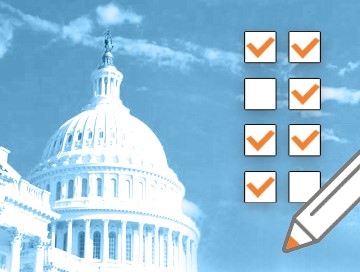

Learn how our services and expertise will help you to achieve success with GSA
- TAA Compliance Check
- ETS Compliance Assessment
- Assistance during GSA Audit
with GSA
Awarded
Served
under
Management
Modifications
Completed
Processed
Rating
Contact us at 201.567.6646 or provide your details below for one hour free consultation
What is TAA compliance?
For a company, being TAA compliant means that the vendor only sells to the government those end products that originate from either the U.S. or certain designated countries only. The term “TAA compliance” refers to the Trade Agreements Act (19 U.S.C. & 2501-2581).
Which countries are not TAA compliant?
There are not too many of them, actually. The full list of non-TAA compliant countries includes:
- China
- India
- Indonesia
- Iran
- Iraq
- Malaysia
- Pakistan
- Russia
- Sri Lanka
How do you know if a product is TAA compliant?
By definition (see FAR 52.225-5), a TAA compliant product is a product that originates from the U.S. or from one of the designated countries, or was substantially transformed in the U.S. or in one of the designated countries. The term “substantially transformed” means that the minimum of 50% of the end product’s manufacturing cost comes from the U.S. or a designated country.
Notice the “end product”. This means that parts, units or components of your product may not on their own be TAA compliant , but as long as at least half of the overall manufacturing cost (i.e. other parts, assembly, modification, programming etc.) of the end product originates from either the U.S. or a designated country, the end product would be deemed TAA compliant.
Does software need to be TAA compliant?
If a product is completely manufactured in the United States or in a TAA designated country, you are TAA compliant. Software country of origin is determined in the country where the software was compiled.
What is TAA certified?
When someone says “TAA certified” in the context of GSA contracting, it basically means the same as “TAA compliant”.
Does software need to be TAA compliant?
Yes. A software product is TAA compliant if it was compiled in the U.S. or a designated country.
Price Reporter team has been efficient at managing our GSA contract catalogs for the past 5 years. They keep our catalogs well maintained and compliant, saving our resources and letting us focusing on making sales.
The B. David Company enlisted the services of Price Reporter, Inc. to setup our DOD EMALL account. We are a second generation family owned company and were uncertain what would be required to complete this task. I fully recommend Price Reporter, Inc. to any company that is looking for assistance with their Government business endeavors. They were and have continued to be extremely helpful. We will continue to rely on Price Reporter, Inc. for future projects.

Price Reporter recently helped us with our 3rd GSA contract, the 2nd they did with us. It was the fastest we’ve ever been through the process with GSA. Each step was easy because the ground work was done before we were asked to do anything. Our pricing verification phase went smooth and quickly and both our contracts were accepted without rejection, with minimal negotiations with contracting.

We first learned about the DOD EMALL a couple years ago from Price Reporter. We decided to move forward on it in 2016. I would recommend them based on the following items:
- They split the payment. Half upfront and the other half is only charged should DOD EMALL contract be awarded to you.
- Adding Price Reporter, specifically Andrey Karpov and Igor London, as agents on our GSA schedule streamlined the process. They were able to communicate with our GSA Contracting Officer to ensure that we received what we needed for DOD EMALL from GSA. This saved time on my end and sped up the process.
- They provide a list of everything you need. Andrey and the rest of his team are meticulous and understand the process on how to get a DOD EMALL contract and thus we benefited from their expertise.
These are a few of the reasons why I would recommend Price Reporter, Inc. Thank you!
Since 2009, Price Reporter has provided Fisher Scientific timely competitive item level GSA pricing data allowing us to identify opportunities and threats. Their customer service focus is solid.
Price Reporter are helping make my life much easier and helping me feel so much better about our GSA contract. Thanks!!!

For the past 10 years, Price Reporter has been providing us with exceptional service for the maintaining of our GSA office supplies contract. They have updated our files on a very timely basis. They have provided modifications when required. For a number of years, they had been giving us a price algorithm where each of our items were priced more than our cost and a penny below the next competitor. A very unique position that gave us thousands of government orders – that was prior to the GSA FSSI BPA.
And for all the service given, their cost was far less than any other consulting firm that we had contacted or worked with over the years.
I would highly recommend their service to any small business that is either interested in getting into the federal government arena or who wants to have their contract maintained at a most highly professional level.
Thank you for supporting a VETERAN OWNED SMALL BUSINESS.
We looked around for a reputable company to help us acquire a GSA contract for Muzeek World Intl., Inc. After looking around we were unsuccessful in finding a good company. By chance, one of our colleagues recommended Price Reporter, Inc., so we called them up. I highly recommend Price Reporter to anyone looking for help in acquiring a GSA contract or any Government business dealings. They have the expertise and the know-how to get the work completed.
We have used Price Reporter for various services over the past 5 years and have been very happy with the services they have provided and continue to provide for us. They work hard to help you get the most from your GSA Schedule and are able to adapt and customize to what your particular needs are. I highly recommend their services to others with GSA Schedules as they help you maximize your sales
We are extremely grateful for all your help in guiding us through the whole process, as this was all new to us. Without the help of you and the rest of the team at Price Reporter, it would have been impossible to achieve our approval – or at the very least – it would have taken a very long time. I would not hesitate to highly recommend Price Reporter, Inc. to anyone needing assistance in government contracts. Your knowledge and assistance was invaluable and very much appreciated, and we look forward to a continued excellent relationship.
Without Price Reporter contacting me at the right time, GSA would probably cancel my contract already. The CO said that she contacted us back in November of 2016, but got no response. Then Price Reporter called me and helped me with all the things needed and I followed his advise. That’s how we found out that our contract will be terminated soon, but had enough time to take the corrective action. The CO called us recently and it looks like they will extend our contract life. Thanks so much for your timely follow up – Price Reporter gave our Government sales a new hope!
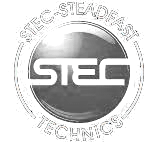
My company STEC-STEADFAST TECHNICS have worked with 2 IT companies before we linked up with PRICE REPORTER ,INC over 5 years ago. Ever since our relationship with the company, there is no reason to stop working with them.
The company is staffed with experienced and high Tech professionals who meet our needs adequately.


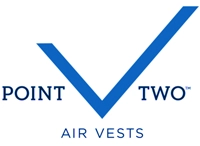
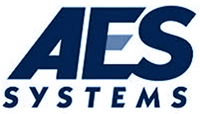
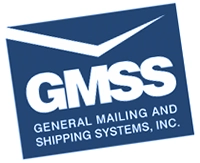

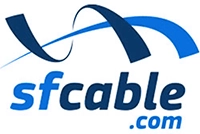



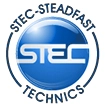














WE TAKE COMPLEXITY OUT OF GSA COMPLIANCE
It should be no surprise that doing business with the United States Government presents unique challenges. The requirements can be daunting and rules are complex. It only takes one error to suddenly find yourself ineligible to conduct business with the government.
It is important to have a plan for maintaining compliance. Being proactive will help avoid potential complications like:
- GSA Contract Suspension;
- Termination of contract;
- Fines and attorney’s fees;
- Jeopardizing contract renewal.
All of which means loss of valuable time, opportunity, and revenue.
And one of the most complicated eligibility issues companies have to deal with is Trade Agreements Act (TAA) Compliance.
TAA COMPLIANCE RULES
Many companies struggle with remaining compliant with the Trade Agreements Act (TAA). It requires that companies only sell products manufactured or “substantially transformed” in the United States or that are made in TAA designated countries, including nations that currently have free trade agreements with the USA
Of course, the current political environment means that TAA designation, the list of GSA compliant countries, and a product’s country of origin are constantly changing. Which in turn means that even if your product fulfills TAA compliance rules at 100% today, tomorrow the political weather changes, and one or more of your products now fails to meet TAA requirements. And your GSA contract is suddenly at risk. We can help you stay on top of it, and help you keep your contract TAA compliant all the way through its term.
Another critical component is the AbilityOne “Essentially The Same” (ETS) compliance requirement. ETS compliance means that federal agencies must source products from the AbilityOne manufacturers instead of the same item manufactured by large Original Equipment Manufacturers (OEM).
TAA CONTRACT
This legislation was designed to create employment for people with disabilities by making AbilityOne products mandatory while their OEM counterparts are made non-compliant.
ETS products must be removed from contracts and no longer be sold to the government. This is done to promote these products, and to help AbilityOne manufactures and the program as a whole. It is critical for GSA Contractors to be ETS-compliant, even if they don’t do sell AbilityOne as the sale of ETS products is prohibited for all contractors and may cause contract violation.
Compliance with United States government regulations can be complex. Maintaining TAA compliance or ETS compliance can be a significant drain on human resources, costing you valuable time that could be spent on growing your business. Leave compliance issues to Price Reporter while you and your team focus on sales and business development.


